News
Pioneering Sustainable Technologies and Nature-based Solutions for Carbon Sequestration
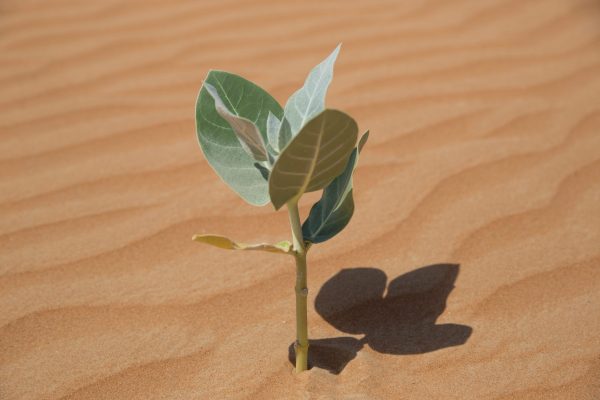
Dake Rechsand, a prominent leader in sustainable technologies and nature-based solutions, has set an impressive standard for climate action and sustainable development through its Verra-listed program. With a commitment to innovation, the company has spearheaded revolutionary solutions in water conservation and sustainable farming. In a landmark initiative, Dake Rechsand launched a carbon sequestration program, encompassing 11 million trees in the GCC region, which has been officially listed on VERRA.
In this exclusive interview, we delve into Chandra Dake’s visionary approach to addressing the diverse facets of sustainability. As the CEO of Dake Rechsand, he offers invaluable insights into the company’s groundbreaking initiatives, their impact on climate action, and the transformative potential of their interdisciplinary solutions.
What makes a tech-driven approach to climate actions different from conventional practices? What are the hallmarks of such an approach?
A tech-driven approach induces accountability, transparency, and measurability into climate actions — something conventional practices have largely failed at. Without transparent climate actions, stakeholders are susceptible to “carbon tunnel vision”, a phenomenon where they solely strive for net-zero emissions while ignoring other sustainable development goals. Tech posits “systems thinking”, promoting comprehensive approaches that factor in how different constituents of the complex climate issue interact.
Dake Rechsand exemplifies this approach with its Verra-listed carbon sequestration project, which uses the CDM methodology and other cutting-edge technologies to measure the impact and select plant species suited for UAE’s desert conditions. The project, part of the company’s innovative ‘Ghaba’ afforestation initiative, aims to plant 11 million trees in arid regions, particularly the Middle East. The initiative hopes to overcome tree-planting challenges — high soil salinity, evaporation, seepage, and excessive irrigation requirements — in deserts using the patented Breathable Sand technology.
Furthermore, Dake Rechsand has aligned the ‘Ghaba’ initiative with, and voiced its support for, the UAE Ministry of Climate Change and Environment’s (MOCCAE) Climate Responsible Companies Pledge aimed at mobilizing stakeholders across sectors towards the common cause of Net-zero 2050. MOCCAE’s initiative underscores the need for concerted and measurable efforts from all stakeholders in the public and private sectors and, by extension, promotes a tech-driven approach to climate actions.
The upcoming COP28, while holding global relevance, shines the spotlight on climate-change effects that are more specific to the region. What, according to you, are the issues that need immediate attention?
The region’s climate has always been arid, with scarce water resources and less-than-favourable conditions for agriculture. Climate change has not only aggravated those challenges but also created new ones, including erratic precipitation and floods. As the MENA region has not historically experienced heavy rainfall, the existing stormwater drainage infrastructure is under-equipped to handle excessive runoff. This issue has become increasingly evident in recent years, with countries such as Egypt, Yemen, and Oman witnessing recurring floods.
These events underscore the pressing need for climate adaptation measures alongside mitigation efforts. Technologies serving both these objectives in a single application are particularly desirable. Such interdisciplinary, dual-purpose solutions must be prioritized, not just in MENA, but across the world. They will not only address immediate challenges but also build resilience for the future. At COP28, it is crucial to highlight the issues, stimulate discussions around them, and advocate for the development and deployment of solutions that hold utility in the context of both climate adaptation and mitigation.
Through use cases, explain how interdisciplinary technologies can measurably and positively contribute to UAE’s Net-zero 2050 and sustainability goals.
Interdisciplinary technologies at the nexus of water, energy, and food (WEF) are particularly relevant for UAE’s Net-zero 2050 and sustainability goals. Sectors like agriculture account for disproportionately high water consumption, increasing dependence on carbon-intensive processes such as desalination. And excessive dependence on desalination is counterproductive to net-zero emissions. So, the agriculture sector demands efficiency-driven interventions through interdisciplinary technologies like Breathable Sand.
Breathable Sand, with its selective permeability and retention properties, allows an optimal supply of air and water to the plant and supports ideal growth. On average, it can reduce irrigation by up to 80% while providing optimal yield. So, it has implications for agricultural productivity and, by extension, food security — all while being environmentally responsible, widely accessible, and cost-effective. Cumulatively, with widespread adoption, Breathable Sand can reduce agricultural water footprint, enhance food security, and support the UAE’s journey towards net-zero emissions — characteristic of an interdisciplinary solution.
The potential of this technology extends beyond agriculture. Breathable Sand can form the basis for ‘Sponge Cities’, a carbon-friendly urban design that imparts decentralized rainwater harvesting into public areas such as roads, playgrounds, and parking lots. By capturing, storing, and recycling rainwater, it alleviates floods (adaptation) and reduces the need for carbon-intensive desalination (mitigation). So, Sponge City can contribute to UAE’s water security and Net-zero 2050, qualifying as an interdisciplinary solution.
Provide real-life examples and practical applications of the above-mentioned climate technologies and their positive impact in the context of GCC. Cite case studies, published journals, and evidence-based research, if any.
The adoption of Breathable Sand technology has yielded transformative results in GCC. For example, at Al Ajban Farms, mango, lemon, and orange orchards planted using the technology have shown impressive survival rates with significantly reduced irrigation. In a green drive in Ras Al-Khaimah, Ghaf trees — a species native to the arid regions of the UAE — were successfully transplanted using Breathable Sand. That was a remarkable feat because Ghaf is susceptible to “transplant shock”. As a testament to Breathable Sand’s revolutionary potential, it featured in FAO’s special report(1) on practical solutions for salt-affected soils and the ‘Green Technology Book – 2022′(2) released on the back of COP27.
The abundance of desert areas in the GCC offers an immense opportunity for greening initiatives using Breathable Sand, just as sprawling urban centres do for Sponge Cities. By promoting regenerative woodland ecosystems such as food forests and agroforestry, stakeholders can restore biodiversity, enable biological carbon sequestration, and ramp up climate mitigation. At the same time, the solution offers sustainable pathways to food and water security — issues of great consequence in GCC.
News
GFH Partners Manrre REIT (CEIC) PLC and Palmon Group unveil new temperature-controlled chemical warehouse in JAFZA
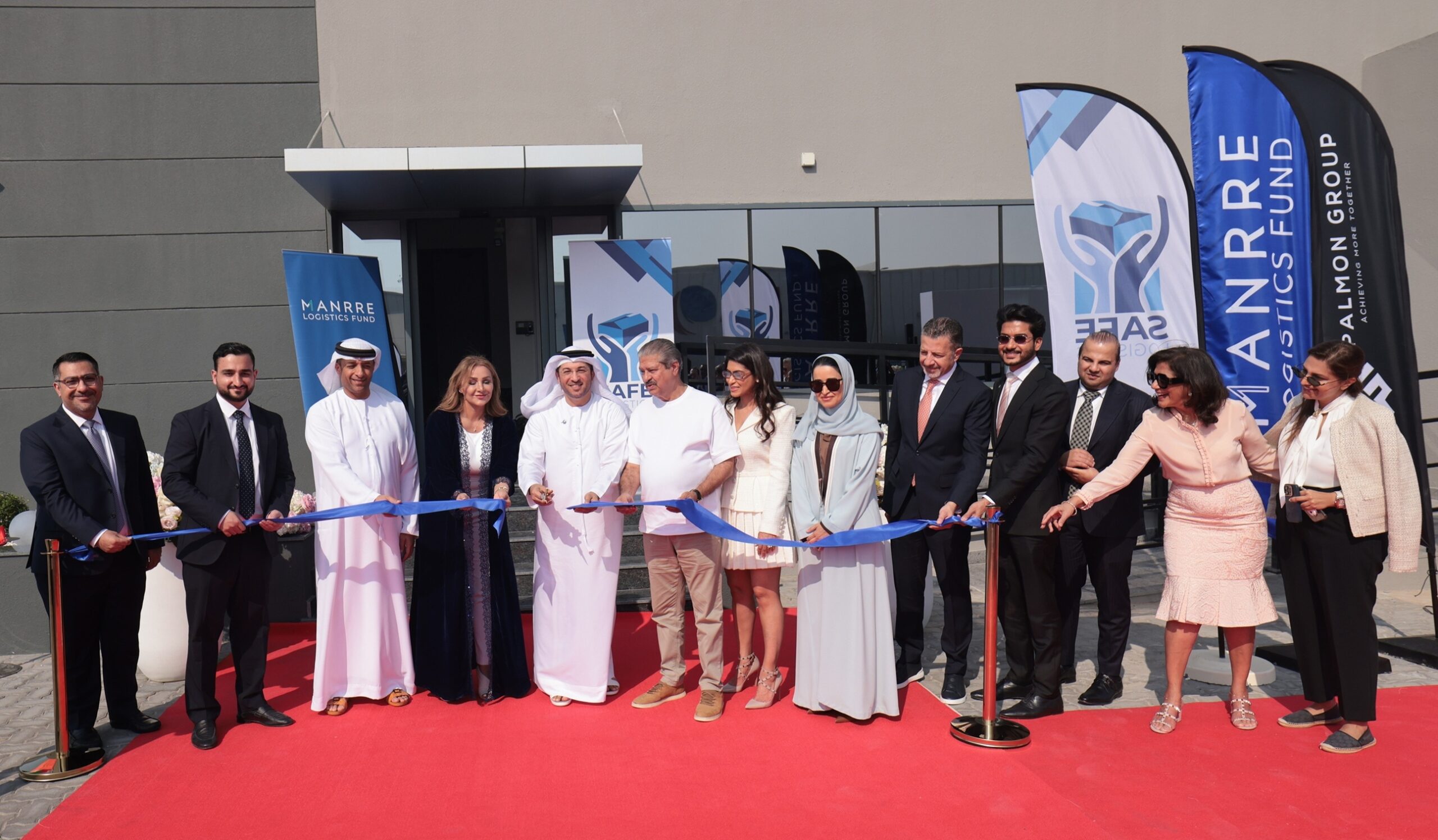
GFH Partners Manrre REIT (CEIC) PLC (“Manrre” or “the Fund”), managed by GFH Partners Ltd. (“GFH Partners”), together with its development manager Palmon Group FZCO (“Palmon Group”), today announced the opening of a specialised temperature-controlled chemical warehouse in Jebel Ali Free Zone (Jafza), further expanding the Fund’s Grade A logistics portfolio.
The inauguration ceremony was held in the presence of Mr Abdulla Bin Damithan, CEO and Managing Director, DP World GC, alongside senior officials and dignitaries from Jebel Ali Free Zone, GFH Partners, and Palmon Group.
Purpose-built and developed by Palmon Group to meet stringent international safety and compliance standards, the new facility reflects the rising regional demand for certified chemical storage infrastructure that supports manufacturing, energy, industrial services, and third-party logistics. The warehouse is situated on a 180,000sq ft plot with a built-up area of 112,000 sq ft, divided into three temperature-controlled chambers that reach a maximum height of 13 metres. The warehouse has been designed with advanced Early Suppression Fast Response (ESFR), and in-rack sprinkler systems to ensure safety and resilience across all operations.
The facility’s layout allows storage of a diverse range of hazard-classified chemicals. One chamber is configured for UN Class 3 and 4 chemicals, a second accommodates UN Class 5 chemicals, while the third has been developed for UN Class 6, 8, 9 and non-regulated materials. The warehouse offers capacity for 17,400 pallets and includes nine loading docks and three loading bays. The office space has been intentionally limited to three percent of the total built-up area, maximising operational efficiency and warehouse utility.
Speaking on the launch, Kunal Lahori, CEO of Palmon Group and Board Member of Manrre, said: “This new facility brings together precision engineering, regulatory compliance, and long-term value creation. Specialised chemical storage requires a high degree of control and risk management, and we have developed this warehouse to meet those expectations while offering flexibility and scalability for tenants. As one of the earliest developers in Jafza, Palmon Group remains committed to supporting the UAE’s logistics and industrial growth.”
Mohamed Ali, Head of GCC at GFH Partners, said: “The opening of this warehouse marks another important milestone in the expansion of the GFH Partners Manrre REIT portfolio, particularly in mission-critical industrial and logistics assets that serve high-growth sectors. The UAE continues to see strong demand for specialised storage solutions, and this facility reinforces our strategy to develop resilient, future-ready assets that deliver long-term value for our investors.”
The logistics hub is now fully operational and is leased to Safe Logistics. The new facility is expected to play a significant role in strengthening regulated supply chains and supporting Dubai’s position as one of the region’s foremost logistics and industrial hubs.
News
Big Ticket joins DP World ILT20 Season 4 as Official Partner
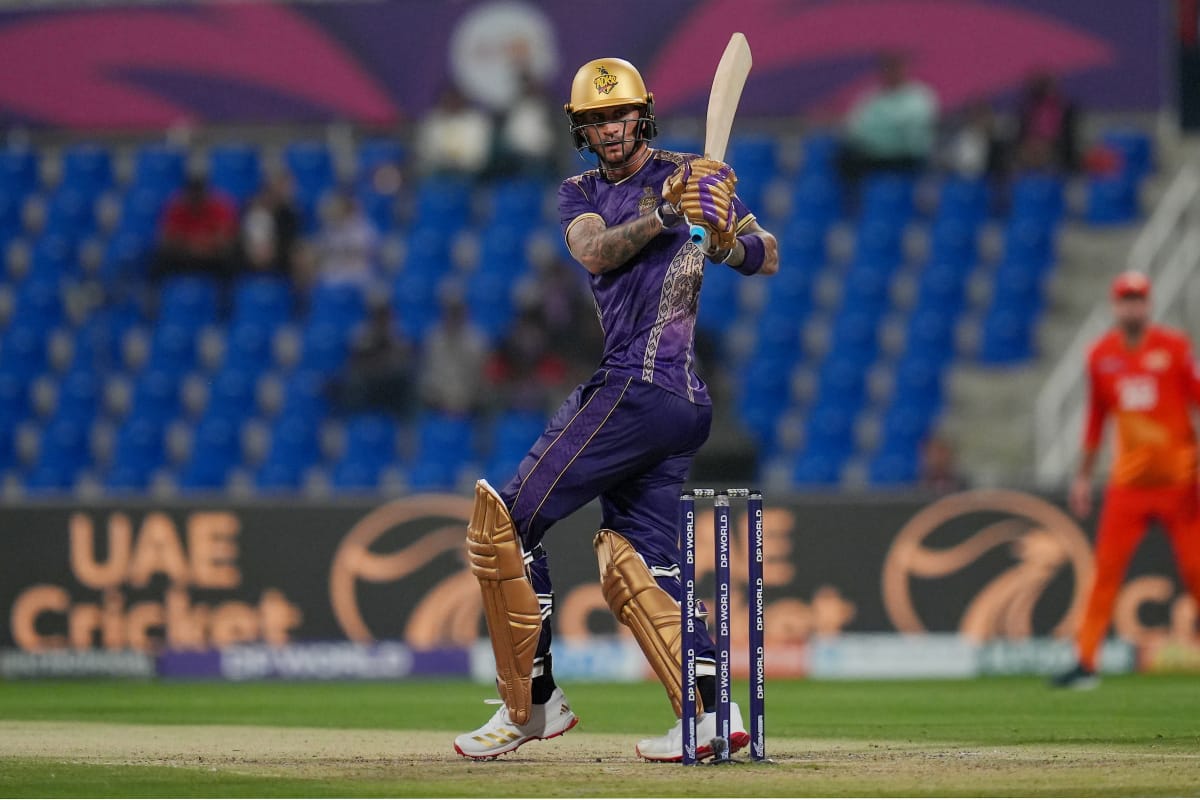
Big Ticket, the largest and longest-running guaranteed raffle draw in the Middle East (known for cash prizes, dream luxury cars, gold bars and coins) has joined the DP World International League T20 Season 4 as an Official Partner.
In recent years, Big Ticket has become more than just a raffle, it has gained the reputation of being a brand built around rewarding dreams and celebrating ambition, growing into one of the region’s largest and one of the most anticipated monthly draws in the UAE.
DP World ILT20 – the 34-match cricketing extravaganza – the biggest T20 tournament in the region featuring some of the most renowned global cricket stars is currently being played at the Dubai International Stadium, Zayed Cricket Stadium, Abu Dhabi and Sharjah Cricket Stadium.
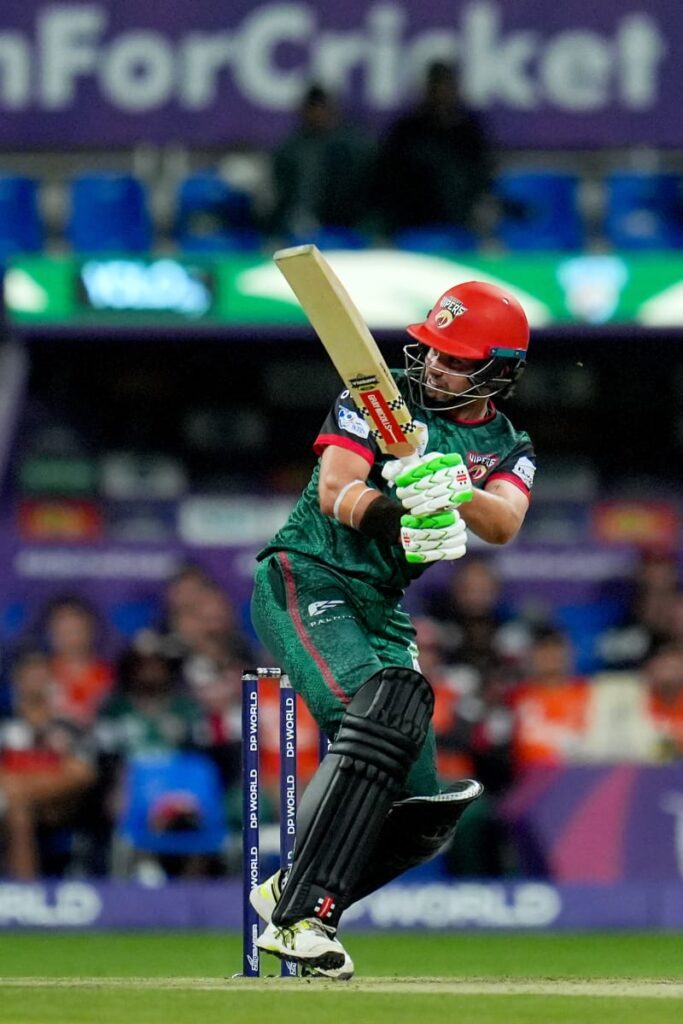
DP World ILT20 Head of Partnerships Ishan Chopra: “We are delighted to welcome a UAE born raffle giant like Big Ticket as an Official Partner of the DP World ILT20. Their legacy of helping dreams come true aligns perfectly with our vision of delivering unforgettable, fan-first experiences across the league. This partnership strengthens our commitment to creating moments of excitement both on and off the field, and we look forward to elevating Season 4 together. With a household name like Big Ticket on board, we are confident of unlocking even more opportunities for fans to engage, celebrate and go All In for Cricket.”
Meanwhile, DP World ILT20 match tickets across all categories are available for the remaining tournament matches. Various spectator stand tickets start at AED 20 and hospitality packages start from AED 325. Fans can also book the new Sixes Lounge experience for AED 395, which includes unlimited food and beverages. Tickets can be purchased by visiting tickets.ilt20.ae or Virgin Megastores.
News
The Maritime Standard Awards 2025 winners list showcases high levels of innovation and operational excellence across the maritime sector
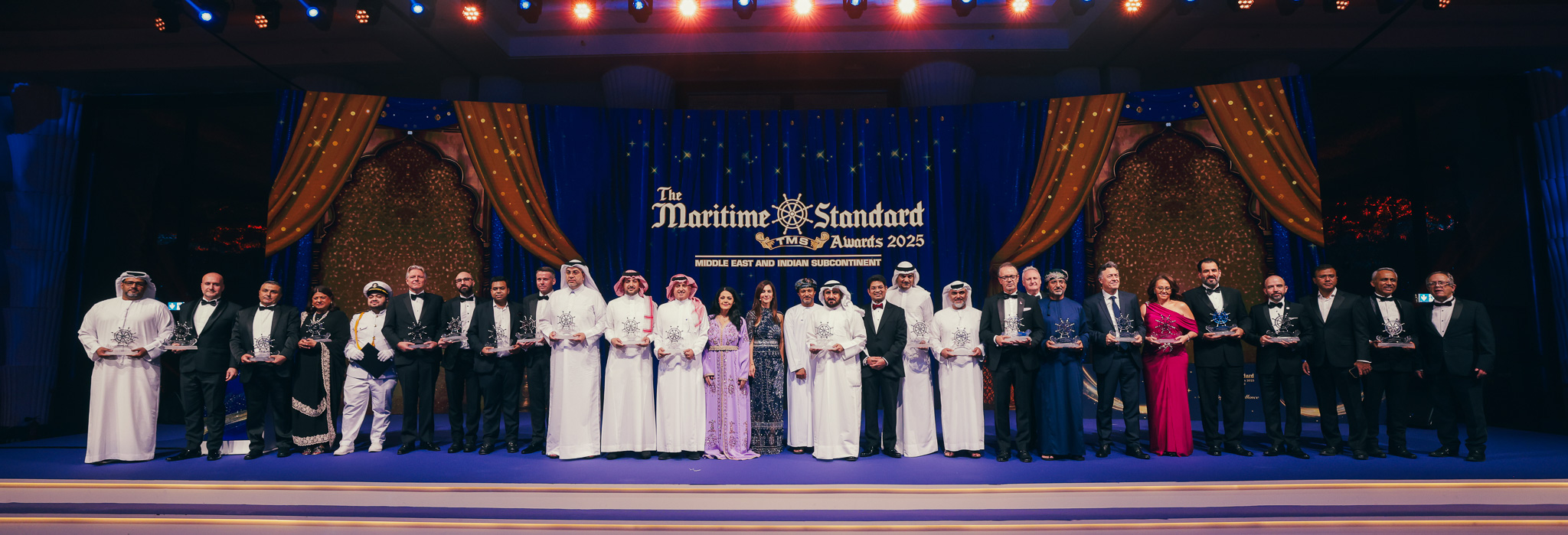
The maritime sector’s leading awards event, The Maritime Standard (TMS) Awards 2025, has announced this year’s winners, honoring outstanding companies and industry leaders from across the Middle East and Indian Subcontinent. The Awards showcased achievement and innovation in 25 categories covering shipping, logistics, ship repair, offshore services, marine technology and related sectors, as well as a series of special awards for individual achievement. The prestigious event took place at Atlantis The Palm, Dubai on October 29th, attracting over 1000 senior executives, decision-makers and industry leaders, from the region, and across the globe.
Held under the patronage of H.H. Sheikh Ahmed bin Saeed Al Maktoum, President of the Dubai Civil Aviation Authority, Chairman of Dubai Airports, and Chairman and Chief Executive of Emirates Airline and Group, the event recognised organisations and individuals for setting new standards in operational excellence and leadership in the sector amid significant shifts in the industry, including decarbonisation, digitalization, and a renewed emphasis on supply chain resilience. From clean-fuel projects and AI-powered port operations to international collaborations that boost trade efficiency, the 2025 Awards showcased the industry’s progress in turning goals into tangible outcomes.
The evening was hosted by Yalda Hakim, a renowned international correspondent and documentary filmmaker, whose engaging presence added distinction to the occasion. The keynote address was delivered by Captain Abdulkareem Al Masabi, CEO of ADNOC Logistics and Services, who shared valuable insights on the evolving maritime landscape and the UAE’s leadership in advancing sustainable and innovative practices across the sector.
Clive Woodbridge, Editor of The Maritime Standard and Chairman of the Judging Panel, stated, “This year’s competition was exceptionally tough, and we received an unprecedented number of entries across all categories. Each finalist demonstrated remarkable achievements and operational standards over the past year, which underlines the significant advances that continue to be made in the regional maritime sector.”
A rigorous assessment process was conducted as part of the award selections, and this was supervised by an independent panel of distinguished judges that included some of the most prominent names in the maritime industry.
Trevor Pereira, Managing Director of The Maritime Standard, commented, “These Awards are not just about celebrating success, but also about encouraging excellence. This year’s event recognised innovative concepts, exciting new initiatives, and outstanding performance standards. As the region continues to expand its maritime infrastructure and digital port systems, with significant developments across the Middle East and the Indian Subcontinent, events like The Maritime Standard Awards play a key role in reinforcing its position as a global leader in shipping and maritime.”
Reaction from the individual winners on the night of October 29th was highly appreciative. Captain Mohamed Al Ali, Senior Vice President, Operations (Offshore Logistics), at ADNOC L&S, who received the Outstanding Achievement Award, added: “It was one of the greatest honours of my professional career to receive this Award. It really means a lot to me to have TMS recognise the years of dedication and hard work.”
Tony Dagher, the Founder and Managing Director of TMC Shipping Group was the recipient of the Young Person in Shipping and was similarly honoured. He said: “I have been fortunate to have had great support from many people during my journey in shipping, and to have a fantastic team around me now. This Award is as much for them as it is for me.
Over the past 12 years The Maritime Standard Awards has consolidated its standing as one of the most prominent annual gatherings within the global maritime calendar, gaining worldwide recognition for recognising excellence and promoting a more resilient and sustainable maritime future.
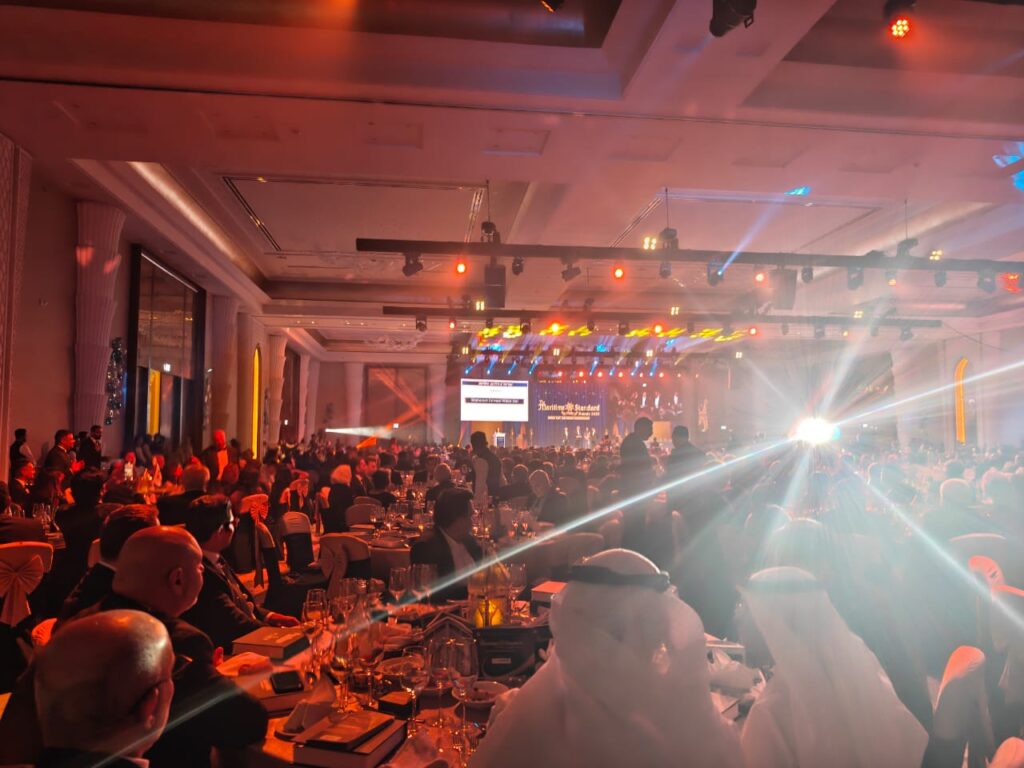
-

 Tech News2 years ago
Tech News2 years agoDenodo Bolsters Executive Team by Hiring Christophe Culine as its Chief Revenue Officer
-

 VAR10 months ago
VAR10 months agoMicrosoft Launches New Surface Copilot+ PCs for Business
-
News10 years ago
SENDQUICK (TALARIAX) INTRODUCES SQOOPE – THE BREAKTHROUGH IN MOBILE MESSAGING
-

 Tech Interviews2 years ago
Tech Interviews2 years agoNavigating the Cybersecurity Landscape in Hybrid Work Environments
-

 Tech News7 months ago
Tech News7 months agoNothing Launches flagship Nothing Phone (3) and Headphone (1) in theme with the Iconic Museum of the Future in Dubai
-

 VAR1 year ago
VAR1 year agoSamsung Galaxy Z Fold6 vs Google Pixel 9 Pro Fold: Clash Of The Folding Phenoms
-

 Tech News2 years ago
Tech News2 years agoBrighton College Abu Dhabi and Brighton College Al Ain Donate 954 IT Devices in Support of ‘Donate Your Own Device’ Campaign
-

 Editorial1 year ago
Editorial1 year agoCelebrating UAE National Day: A Legacy of Leadership and Technological Innovation











